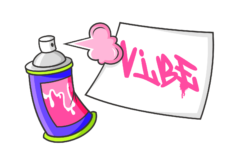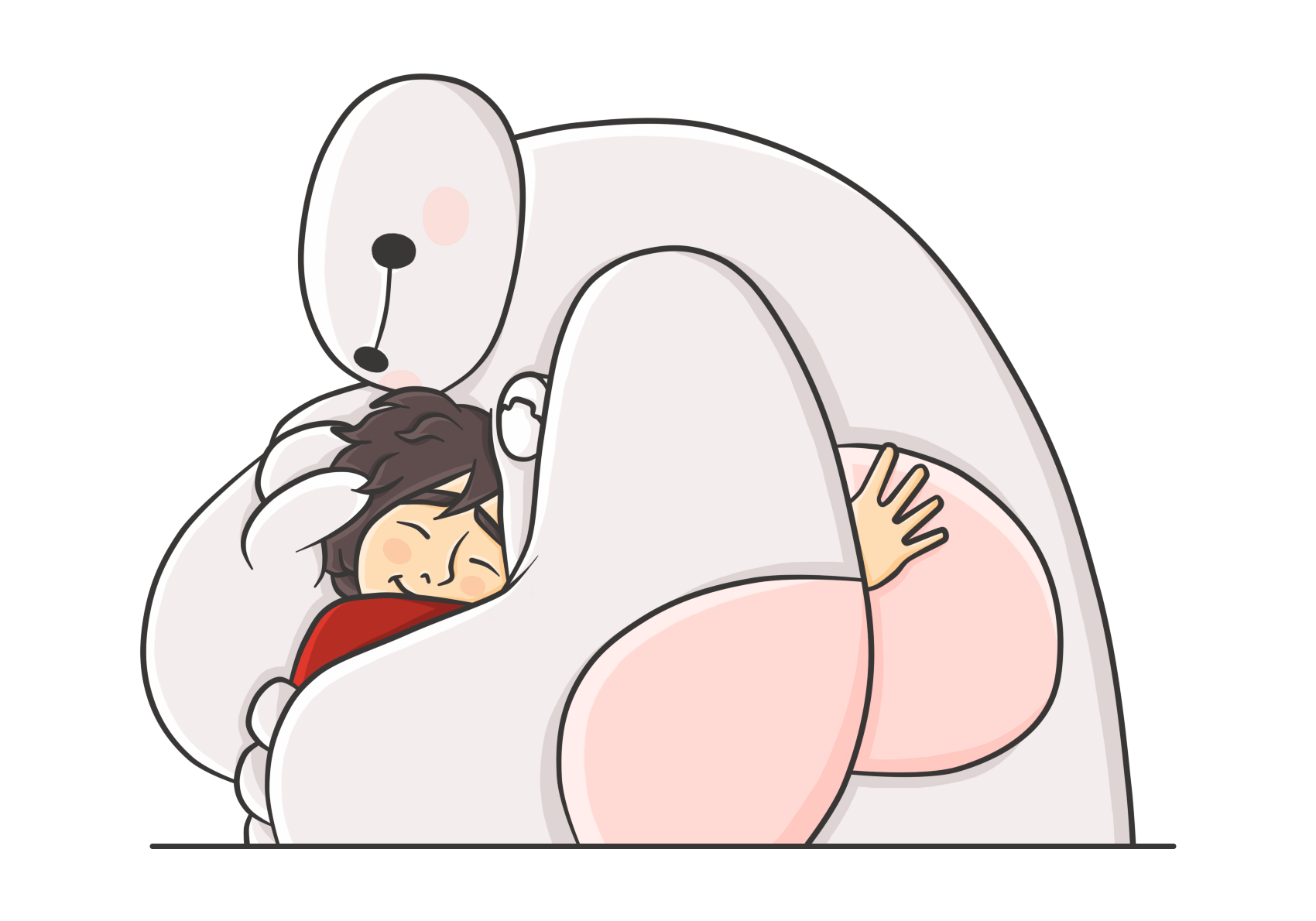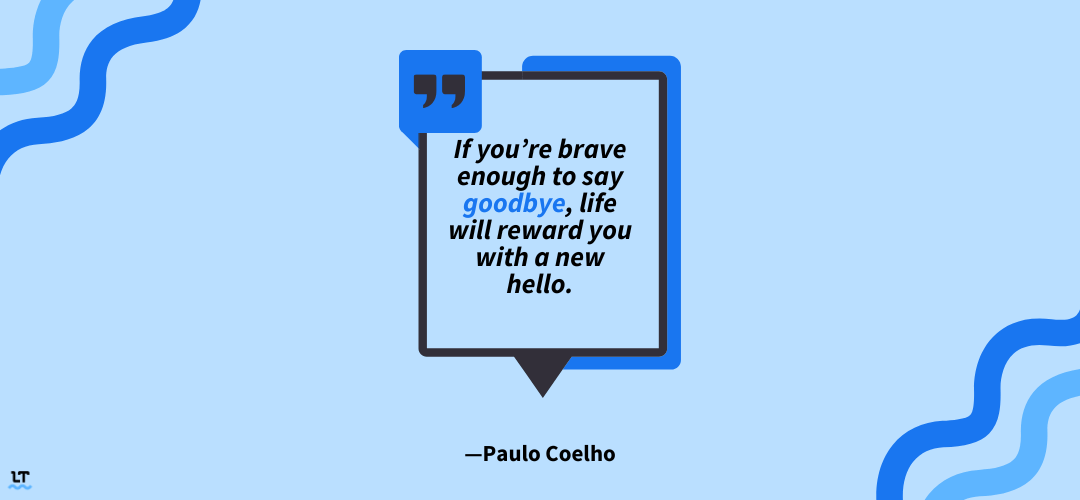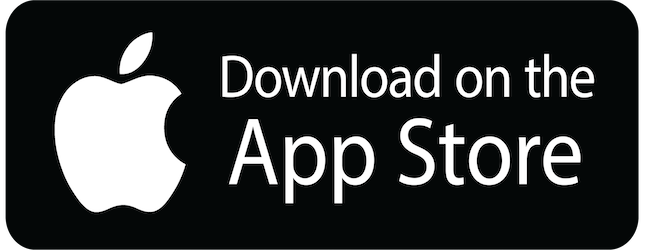В статье разберем 23 выражения, которыми можно заменить или дополнить привычные goodbye и bye.
Способов попрощаться в английском языке великое множество: сленговые и официальные, обыденные и экстравагантные, шутливые и драматичные. Сегодня научимся уходить по-английски грамотно. Кстати, фраза «уйти по-английски», то есть не попрощавшись, на английском звучит как to take French leave (уйти по-французски) или to make an Irish exit/goodbye (уйти по-ирландски).
1. Bye-bye! — Пока-пока!
Мы просто удвоили bye, и фраза от этого стала игривее, поэтому использовать ее лучше с членами семьи или близкими друзьями. Особенно часто bye-bye говорят на прощание детям.
2. (Good)bye for now! — До свидания! / До встречи!
For now в конце выражения подразумевает, что в скором времени вы надеетесь снова увидеться. По мнению некоторых носителей, goodbye for now звучит мягче и дружелюбнее, чем просто goodbye. Такое прощание можно услышать от теле- или радиоведущих в конце передачи.
Еще существует вариант (good)bye now, но в зависимости от интонации фраза может звучать резко и пренебрежительно.
3. Cheers!/Cheerio! — Пока!
В современном британском английском междометие cheers, которое обычно говорят, чокаясь бокалами, используется и как альтернатива bye. Слово относится к разговорному стилю и неуместно по отношению к малознакомым людям, а также в официальной обстановке.
4. Ta-ta! — Пока!
Необычное междометие полюбилось британцам в середине прошлого века благодаря популярному радиоспектаклю, где один из персонажей неизменно говорил на прощание ta-ta. Часто это слово можно услышать в детской речи или по отношению к детям.
5. Peace (out)! — Пока!
Еще один разговорный вариант, но на этот раз американский. Однако советуем им не злоупотреблять, чтобы не попасть в неловкую ситуацию. Со сленгом вообще стоит быть осторожными, так как он не универсален и изменчив.
6. Take it easy! — Держись!
Основное значение выражения — «не принимай все близко к сердцу». Обычно так говорят, когда хотят успокоить и поддержать человека. В американском английском take it easy можно услышать на прощание от друзей.
7. Take care (of yourself)! — Счастливо!
Take care используется по отношению к близким людям и помогает выразить заботу. Однако некоторые носители считают, что фраза практически ничем не отличается от bye и может употребляться как с членами семьи и друзьями, так и просто с хорошими знакомыми или коллегами.
8. Look after yourself! — Береги себя!
Еще одно выражение, которое можно использовать при расставании с близкими. Им вы покажете, что беспокоитесь о них и желаете всего наилучшего. Чаще встречается в британском английском.
9. I’ll miss you! — Я буду скучать!
Если разлука с любимыми предстоит долгая, то на прощание можно сказать I’ll miss you. Человеку всегда приятно услышать, что по нему будут скучать, так что советуем запомнить эту фразу и говорить ее тем, кто вам дорог.
10. So long! — Пока!
Одно из самых таинственных и немного устаревших выражений. Никто точно не знает, когда и почему so long, которое обычно значит «так долго», стали использовать как альтернативу bye. Есть версия, что это искаженное заимствование из другого языка: ирландского, немецкого, арабского или иврита. Однако это не более чем догадки. Сейчас междометие so long употребляется редко.
11. Until/Till next time! — До скорого!
Это выражение подходит, если вы уверены, что расстаетесь с человеком ненадолго или знаете дату следующей встречи. Next time можно заменить на конкретный день: until next Thursday (до следующего четверга), till tomorrow (до завтра), till the weekend (до выходных). В речи носителей также можно услышать until/till we meet again (до новых встреч).
12. Keep/Stay in touch! — Будь на связи! / Не теряйся!
Еще один способ попрощаться — сказать человеку, что вы не хотите терять с ним связь. Stay in touch звучит более искренне и выражает надежду видеться как можно чаще. Keep in touch может быть лишь проявлением вежливости.
13. (It was) nice meeting/seeing you! — Рад был познакомиться/повидаться!
Если вы не знаете, когда в следующий раз встретитесь с человеком и встретитесь ли вообще, то завершить разговор можно одной из этих фраз. Обратите внимание, что nice meeting you мы говорим тем, кого видели впервые, а nice seeing you — знакомым. Выражения nice to meet you и nice to see you (рад встрече) также говорят на прощание, но чаще используют как приветствия.
14. (I’ll) be seeing you! — Увидимся!
Еще один вариант на случай, если вы не уверены, когда встретитесь в следующий раз. Фразу используют в разговоре с хорошими знакомыми.
15. See you around! — (Как-нибудь) увидимся!
Это выражение похоже на предыдущее и уместно в неформальной обстановке по отношению к тем, с кем у вас нет запланированных встреч на ближайшее время.
16. See you (later)! — До скорого!
В отличие от (I’ll) be seeing you и see you around, фраза see you подразумевает, что вы знаете, когда встретитесь в следующий раз. После нее могут стоять слова later (позже), next time (в следующий раз), soon (скоро) или конкретное время: see you tonight (увидимся сегодня вечером), see you next Tuesday (увидимся в следующий вторник), see you at the weekend (увидимся на выходных).
17. Catch/Check you later! — До скорого!
Если see you later скорее нейтрально, хотя и носит разговорный оттенок, то выражения catch you later и check you later допустимы только в дружеской компании. В молодежном сленге в конце девяностых и начале двухтысячных была популярна фраза smell you later. Сейчас она почти не используется, но ее можно услышать в фильмах и сериалах тех лет.
18. Later(s)! — До скорого! / Пока!
Рекомендуют использовать эту сленговую фразу только в кругу друзей или семьи. Laters часто встречается в речи подростков.
19. (Good) night! — Спокойной ночи! / Хорошего вечера!
Это междометие используется в двух случаях: перед сном и когда вы прощаетесь с человеком поздно вечером. Фраза good night универсальна, а просто night можно употреблять в неформальной обстановке. Выражение night-night носители говорят детям, желая спокойной ночи.
20. Good evening! — Хорошего вечера!
Имейте в виду, что эта фраза уместна только в официальной речи и покажется нелепой в кругу друзей или знакомых. В старых фильмах вы можете услышать good morning (хорошего утра), good afternoon (хорошего дня), good evening (хорошего вечера), сказанные на прощание.
Также в английском есть междометие good day, которое считается устаревшим и используется крайне редко.
21. Have a good/nice day! — Хорошего дня!
Универсальное прощание, которое некоторые носители считают клишированным и безэмоциональным. Часто его говорят сотрудники магазинов, кафе, салонов красоты и других общественных учреждений.
Чтобы фраза звучала не так шаблонно, a day можно заменить другими словами: have a nice evening (хорошего вечера), have a good weekend (хороших выходных), have a nice vacation (хорошего отпуска). В американском английском популярен разговорный вариант — have a good/nice one.
22. Enjoy the rest of your day! — Хорошего дня!
Еще один вежливый способ попрощаться ближе к концу дня. The rest означает «остаток», поэтому фраза используется, когда что-то либо в самом разгаре, либо скоро закончится. Вместо day можно использовать другие слова: enjoy the rest of the party (хорошей вечеринки), enjoy the rest of your weekend (хороших выходных), enjoy the rest of your evening (хорошего вечера).
23. Farewell! — До свидания! / Прощай(те)!
Это прощание редко можно услышать в обычной речи, однако его любят использовать в фильмах и книгах, чтобы передать дух былых времен или добавить драматизма. Farewell может означать, что вы больше никогда не увидитесь.
Прислушивайтесь к тому, что говорят люди вокруг вас, в кино или по телевизору, в каких ситуациях они используют те или иные фразы, старайтесь повторять за ними, делая свою речь более разнообразной. А если хотите узнать, чем можно заменить hi и hello, читайте нашу статью «13 приветствий в английском языке».
Предлагаем пройти короткий тест, чтобы закрепить материал.
Тест по теме «23 способа попрощаться по-английски»
© 2023 englex.ru, копирование материалов возможно только при указании прямой активной ссылки на первоисточник.
How To Say “Goodbye” Without Saying “Goodbye”
powered by
LanguageTool
“Goodbyes” don’t have to always be so heavy. They can be casual, fun, and friendly too! Below you’ll find 13 synonyms for “goodbye.”
What Are Some Synonyms for “Goodbye”?
Goodbye is an expression used when ending a conversation and parting ways with someone.
- It was a pleasure talking to you, Jared. Goodbye!
A few other ways you can say goodbye are:
- Farewell
- So long
- Take care
- See you around
- Catch you later
Saying “Goodbye”
English fluency is both knowing what different words mean and knowing how to say one thing in different ways. That’s why we’re going to go over 13 different casual, funny, and formal ways to say goodbye in English.
Not all goodbyes are the same. The following alternatives have different implications and are often used in different scenarios.
1. Until next time.
This option is mostly used in casual situations, but can also work in formal settings. It conveys that you’ll be seeing the person again sooner or later.
It was nice catching up. Until next time, David.
2. Talk to you later.
As you might have guessed, this alternative also implies that you’ll be seeing (and talking to) the person later. It’s mostly used in casual settings. Talk to you soon works the same way.
I’m late for class. I’ll talk to you later.
It’s not uncommon to see talk to you later abbreviated as TTYL while chatting online or sending text messages.
3. See you soon.
Again, this alternative to goodbye is also used when you’ll be seeing the person again, but the soon indicates that it’ll be in the near future. This option is frequently used in casual environments.
I’ve got to go. See you soon.
4. Take care.
Take care is used in both formal and casual conversations. It’s extremely polite and shows you care.
Enjoy your trip, Derrick. Take care.
5. Farewell.
This is an old-fashioned and formal way of saying goodbye to someone, but it’s still in use today. Use it when you won’t be seeing the recipient for a long time or ever again. This option can carry a lot of weight, especially when using it with someone you know closely.
Thanks for everything. Farewell.
6. So long.
So long is similar to farewell, just slightly less intimate.
So long, Winston. Good luck with your new job.
7. Don’t be a stranger.
Use this expression as a way to say goodbye and let your recipient know that you want to hear from them again soon. This is a colloquial expression, so avoid using it in formal or professional settings.
It was nice seeing you again after all these years. Don’t be a stranger.
8. Take it easy.
Take it easy is a more casual and friendly way of saying take care. Use it with your friends or colleagues you are close with.
Take it easy. See you next weekend.
9. Later.
Short, sweet, and colloquial, some people use later when ending a conversation with friends and acquaintances. It suggests you’ll be seeing them again later.
Tonight was fun. Later!
10. Catch you later.
This is a more friendly and casual way of saying talk to you later.
Catch you later, my friend.
11. Have a good one.
This alternative to goodbye is like saying have a good morning, day, evening, or night. It’s fitting for both formal and casual settings.
Thanks for the opportunity. Have a good one.
12. Hasta la vista!
Yes, this alternative is in Spanish, but it’s an expression made famous in pop culture thanks to Arnold Schwarzenegger in the movie The Terminator. It’s a light-hearted and funny way to say goodbye, but should not be used in formal or professional conversations.
This has been fun. Hasta la vista, baby!
13. Peace!
Peace is a slang term for saying goodbye to someone. Use it with friends, family, and acquaintances—never in formal settings. Peace out is a variation of this expression.
See you next time. Peace!
Say Goodbye to Writing Mistakes
Going through different ways of saying goodbye might seem like a futile exercise, but it’ll enhance your fluency and help you speak naturally to your friends and colleagues. Goodbye is a phrase often used daily. Try switching it out with any of these alternatives.
Another helpful way to improve your fluency is to use LanguageTool as your spelling and grammar checker. Not only will this multilingual text editor correct errors in your writing, but it can help rewrite your sentences to be more fluent with its rephrasing feature. Give it a try today.

By and Alan
Last updated:
April 9, 2023
Tired of saying “goodbye”?
Want to take your boring “goodbye” and turn it into something friendlier or more interesting?
Whether you’re an ESL student looking to speak more naturally with your English-speaking friends, or a business person looking to connect with your clients, we’ve got you covered.
Here are 17 English phrases and expressions you can say instead of just plain-old “goodbye.”
Contents
- 17 Smart Ways to Say Goodbye in English
-
- Common Ways to Say Goodbye in English
-
- 1. Bye
- 2. Bye bye!
- 3. See you later, See you soon or Talk to you later
- 4. I’ve got to get going or I must be going
- 5. Take it easy
- 6. I’m off
- Formal and Business Goodbyes in English
-
- 7. Goodbye
- 8. Have a nice day or Have a good _____
- 9. I look forward to our next meeting
- 10. Until _____
- 11. Take care
- 12. It was nice to see you again or It was nice seeing you
- 13. Goodnight
- Slang Ways of Saying Goodbye in English
-
- 14. Later, Laters, or Catch you later
- 15. Peace or Peace out
- 16. I’m out or I’m out of here
- 17. I gotta jet, I gotta take off, I gotta hit the road or I gotta head out
- Other Resources to Say Goodbye in English
Download:
This blog post is available as a convenient and portable PDF that you
can take anywhere.
Click here to get a copy. (Download)
17 Smart Ways to Say Goodbye in English
“Goodbye” can be said in many different ways, depending on the situation.
Common Ways to Say Goodbye in English
1. Bye
This is the standard goodbye. It’s short, simple, and you can say it to absolutely anyone. It’s appropriate for friends and family, as well as co-workers and business partners. Even if you use some of the other expressions on this list, you normally still say “bye” as well afterwards.
2. Bye bye!
This sweet and babyish expression is usually only used when speaking to children. Occasionally, adults will say “bye bye” to each other, but only if they know each other quite well and they’re trying to be flirtatious or cute. You don’t want to say this to a colleague or business partner.
3. See you later, See you soon or Talk to you later
These are appropriate for anyone, from co-workers to friends. Often, we say one of these expressions before saying “bye”, because “bye” can sound a little short on its own. Keep in mind that “you” is usually pronounced “ya”.
4. I’ve got to get going or I must be going
These are a good expression to use when you’re ready to leave a social gathering. It would be rude to suddenly say “bye” and leave in the middle of a conversation. Saying “I’ve got to get going” lets people know that you’re ready to start saying “goodbye”. Depending on the situation, you might also briefly explain why you’re leaving. For example, you might say “I’ve got to get going. I have to wake up early tomorrow morning”. This expression acknowledges that you’ve enjoyed yourself and are reluctant to leave.
5. Take it easy
This expression is a more casual way of saying “have a nice day”. “Take it easy” is basically encouraging the person not to work too hard, and to take some time to relax. Keep in mind that “take it easy” is sometimes also said to an angry or irritated person, in which case it means “calm down”.
6. I’m off
This is another informal way of letting people know that you’re ready to say goodbye. You might soften this phrase by saying something like “right then, I’m off” or “anyway, I’m off”. Using expressions like these before saying “I’m off” lets people know that you’re about to announce something. Again, you might also briefly explain why you’re leaving. For example, you could say “anyway, I’m off: I’ve got a busy day tomorrow”. It’s a relaxed way to say goodbye, and helps you depart smoothly.
Formal and Business Goodbyes in English
7. Goodbye
As strange as it seems, the word “goodbye” is rarely used to say goodbye. It sounds very formal and is typically only used if you are never going to see the person again. “Bye” is usually more appropriate, even in business situations.
8. Have a nice day or Have a good _____
These are pleasant, polite ways to say goodbye to someone you don’t know very well. You might say this to a co-worker, cashier or casual acquaintance. You can use almost any noun after “good” depending on the situation. For example, you might say “have a good vacation” if you’re saying goodbye to someone before he or she leaves for a holiday; or “have a good weekend” when saying goodbye to a colleague on Friday afternoon.
9. I look forward to our next meeting
This very formal expression is appropriate if you would like to continue doing business with someone. It lets the person know that although you’re saying goodbye now, you want to keep in contact with him or her.
10. Until _____
This expression is a little less common, but you might use it if you know the next time you’re going to see the person. For example, if you’re going to see the person again next week you could say “until next week”.
11. Take care
Take care can be used in professional situations, as well as more casual ones. It’s a warm, genuine-sounding expression that is usually received well by others. Keep in mind that you wouldn’t typically use this expression with someone you see every day. If you say “take care” as you say goodbye to someone, it usually means you’re not going to see him or her for at least a week or more.
12. It was nice to see you again or It was nice seeing you
When you greet someone you often say “it’s nice to see you”, so when you say goodbye you can say “it was nice to see you again”. You can use this expression to say goodbye to someone you already know. Or if this was the first time you met the person, you can say “it was nice meeting you”.
13. Goodnight
This formal way of saying goodbye can only be used late in the evening when people are heading home for the night. Keep in mind that “good morning”, “good afternoon” and “good evening” are greeting expressions, and only “good night” can be used to say goodbye.
Slang Ways of Saying Goodbye in English
14. Later, Laters, or Catch you later
These are slang ways of saying “see you later” which are common among teenagers. They’re very casual and should only be used with people you know very well.
15. Peace or Peace out
These casual ways of saying goodbye were very popular in the 1990s. Some people still use them today, but they can also sound a little out-dated. If it’s not an expression that you hear your friends using, then it’s probably best not to use it yourself.
16. I’m out or I’m out of here
This is a very casual way of letting people know that you’re leaving, which should only be used among friends. Using these expressions makes it sound like you’re happy to be leaving, so be careful how and when you say them. For example, a student might say “I’m out of here” to his friends after his last class, because he’s happy to be finished school and going home for the day.
17. I gotta jet, I gotta take off, I gotta hit the road or I gotta head out
These are slang versions of “I’ve got to get going”. “Gotta” is an abbreviation of “got to”. Like “I’ve got to get going”, these expressions let your friends know that you’ve had a nice time and you’re at least a little sad to be leaving.
Other Resources to Say Goodbye in English
If you can’t get enough of “goodbye” alternatives, here are some other resources that you might also find helpful.
The video below is by a well-spoken instructor who offers more ways to say goodbye.
As you can see, saying goodbye might sound simple, but there are a lot of expressions for it in English! When it comes to conversational English, context matters. To figure out when to say these expressions naturally, it helps to learn them in context and get plenty of examples.
Try to look for “goodbye” phrases in English conversations. Besides listening to native speakers, you can also check out authentic English media that’s made for and by native speakers. These include books, podcasts, movies, TV shows and more, all of which can show you everyday English expressions.
The authentic videos on the language learning program FluentU can also help. Each clip has interactive subtitles, so you can click any word to see a definition, example sentences and other videos that use the same word. That way, you can learn how to say “goodbye” and other common expressions in context.
As you keep encountering these expressions in different scenarios, you’ll get an instinct for when to say them naturally–which is a sign of becoming fluent.
There you have it! Feel free to play around with these different ways to say goodbye and see which ones you like the most.
Download:
This blog post is available as a convenient and portable PDF that you
can take anywhere.
Click here to get a copy. (Download)
It’s important to learn how to say goodbye in English because this is a crucial conversational skill to have as a new learner. In any language, saying goodbye at the end of a conversation or when leaving a group is polite. It lets the other party know that you respect them, and it makes your leave less abrupt.
In this article, we’ll go over a number of ways to say goodbye in English. We cover the most common words and phrases for a variety of situations, so you’ll never have to leave awkwardly again!
- → Before you continue, we recommend that you read our articles on How to Say Hello in English and How to Confidently Introduce Yourself.
Start with a bonus, and download the Must-Know Beginner Vocabulary PDF for FREE!(Logged-In Member Only)
Table of Contents
- The Two Most Common Ways to Say Goodbye in English
- Goodbye Expressions in English for Any Situation
- Goodbye in English Slang & Pop Culture
- Final Thoughts
1. The Two Most Common Ways to Say Goodbye in English
In the United States, there are two goodbye words you’re going to hear often. These are:
| “Goodbye“ | This one is more formal, but it’s still casual enough to use with friends and family. |
| “Bye“ | This means the exact same thing as “goodbye,” but is shorter and a little bit less formal. |
If you only learn a couple ways to say goodbye in English today, it should be these.
2. Goodbye Expressions in English for Any Situation
Now, let’s move on to more specific English phrases for goodbye. In the following sections, I’ll give you words and phrases to say goodbye based on the situation or context. I’ll also provide examples for each one, so you can see how to use them.
A- Formal
Here are some formal ways to say goodbye in English. These are fairly versatile, and you can use them in most situations that call for formal language.
“Thank you for your time.”
You can use this phrase in formal situations, after someone has offered you their time or helped you with something. This is also common after meetings or appointments. Keep in mind that you can use this phrase in both spoken and written communication.
Example:
“Excuse me, how can I set up a bank account here?”Bank Clerk:
“I can help you with that over here.”
[After your account is set up…]
You:
“Thank you for your time.”
- → Here’s some Useful Vocabulary You Need at the Bank!
“I enjoyed our talk.”
This is something someone would say after talking with a client, patient, or anyone else in a more formal environment.
Example:
“I enjoyed our talk. See you again this time next week.”Patient:
“Thank you. See you then.”
“It was a pleasure speaking with you.”
This is something a client may tell a customer, especially in more formal or regulated environments, such as a bank or other financial institution.
Example:
“It was a pleasure speaking with you.”Client:
“Thank you, you too. See you next month.”
“I look forward to our next meeting.”
People often use this phrase when they plan on seeing the other person (or people) again in a formal environment.
Example:
“I like your qualifications. Can you start next week?”Decorator:
“Of course, thank you. I look forward to our next meeting.”
“Thank you for scheduling your appointment. We’ll see you then.”
This is a common way of saying goodbye in formal situations, especially when a customer or client is leaving.
Example:
“Thank you for scheduling your appointment. We’ll see you then.”You:
“Thank you. See you then.”
B- Making Arrangements for Another Meeting
We’ve covered how to say goodbye in formal situations, but what about when things are more laid-back? Here are some English goodbye phrases you can use to plan another meeting with a friend.
“See you later.”
This is a very common phrase to use when you’re about to part ways with a friend (or group of friends). It means that you plan on seeing them again, but you’re not sure exactly when.
Example:
“I need to go home now. See you later.”A Friend:
“Bye. See you later.”
“Catch you later.”
This phrase has the exact same meaning as “see you later,” but is significantly more casual.
Example:
“Thanks for the talk. Catch you later.”Friend:
“You too.”
“See you around.”
This one is very similar to the two phrases above.
Example:
“Well, see you around.”Other Person:
“Thanks, you too.”
“See you tomorrow.”
When you say “See you tomorrow,” it means that you actually plan on seeing them tomorrow, usually because you set a date with that person.
Example:
“Are you free tomorrow?”Friend:
“Sure. Do you want to get coffee?”You:
“That sounds good.”Friend:
“Great. See you tomorrow.”
“See you at eight.”
In this phrase, you can replace “eight” with any other time. This is used in situations similar to the one above.
Example:
“What time should we meet for coffee?”Friend:
“How about ten?”You:
“Sure. See you at ten.”
“See you in a couple weeks.”
This is something you would say to someone if you plan on meeting with them in a couple of weeks. You can replace “a couple weeks” with any other extended time period.
Example:
“I’ll be coming down there next month to see you.”You:
“
Additional Note
Most of the phrases in this section can also be used as a question. For example, if you want to confirm when you’ll be seeing someone next, you can say the relevant phrase as a question.
Example:
“Maybe we can go see the hockey game together.”Friend:
“Yeah, that’s a good idea.”You:
“Great! See you next weekend?“Friend:
“Yep, at nine o’clock sharp.”
- → Want more useful phrases? Check out our list of the Top 10 Conversational Phrases!
C. Seeing Someone Off
It can be painful to say goodbye to someone you care about, especially when you know they’ll be gone a long time, or are going somewhere far away. Here are some special goodbye phrases you can use for situations like this.
“Take care.”
Use this phrase to let someone know you want them to take care of themselves while they’re gone.
Example:
“Have fun and take care.”Friend:
“Thank you, I will.”
“Drive safe.”
Use this phrase to let someone know you want them to drive safely, especially if you know they’ll be driving a long distance or in dangerous driving conditions.
Example:
“It’s supposed to snow a lot today. Drive safe.”BF/GF:
“I promise I’ll drive safely. I love you.”
“Safe travels.”
This one is a more generic goodbye phrase for when someone will be traveling. It means you want them to be safe during their travels.
Example:
“That sounds like fun. Safe travels.”Aunt:
“Thank you.”
“Have a safe trip home.”
You can say this to someone when they’re about to leave for home.
Example:
“Have a safe trip home.”Friend:
“Thank you, I will.”
“I’ll miss you.”
You can say this to someone you really care about before they leave.
Example:
“I enjoyed seeing you. I’ll miss you.”Grandparent:
“We’ll miss you too.”
“Don’t be gone too long.”
If you’re really going to miss someone after they leave, you can say this to them. It shows the other person that you’ll miss them and look forward to the next time you can see them again.
Example:
“I’ll miss you. Don’t be gone too long.”Spouse:
“I’ll miss you too. See you next week.”
“Call me when you get there.”
Say this to someone to let them know you care about their safety while traveling. It means that you expect a phone call (or text message) from them when they arrive, so you know they’re safe. This is especially common for a parent or grandparent to tell their child or grandchild.
Example:
“Thank you for our visit. I should leave soon.”Father:
“Thank you. Call me when you get there.”
“I love you.”
Many times, saying goodbye to someone we care about involves saying “I love you,” especially if it will be a while before you see them again.
Example:
“I enjoyed our visit. I love you.”Mother:
“I love you too. Bye.”
“Farewell.”
This goodbye phrase may be a little bit outdated, but some people still say this. It’s basically a way of letting the other person know you want them to be safe while they’re away.
Example:
“Safe travels. Farewell.”A Relative:
“Thank you. Goodbye.”
D. Leaving a Group or Party in a Hurry
It can be very awkward to leave a group of people without saying anything. If you need to quickly say goodbye in English conversations involving a lot of people, there are a few phrases you can use to let people know you’ll be leaving soon.
“I gotta run / fly / jet.”
This is a very informal way of letting people know you’re about to leave, and is fine for any kind of casual gathering. The words “run,” “fly,” and “jet” are pretty much interchangeable, as they all mean that you need to leave quickly.
Example:
“I gotta run!”Friend:
“Oh, okay. See you later.”
“I’ll need to get going soon.”
This is a slightly more formal and polite way of saying that you need to leave. It’s not really saying “goodbye,” but it’s a way of letting others know you’ll have to go.
Example:
“I’m so sorry, but I’ll need to get going soon.”Friend:
“No, it’s okay. Thanks for coming.”
“I can’t stay much longer.”
This phrase is almost the same as the one above.
Example:
“Sorry, but I can’t stay much longer.”Friend:
“Ah, that’s okay. See you around.”
“There’s someplace I need to be.”
You can use this phrase to let others know you need to leave in order to be somewhere else, especially if it’s another responsibility you have. ‘
Example:
“Sorry, but there’s someplace I need to be.”Friend:
“It’s okay. Good luck.”
“Sorry to leave so soon, but I have to ___.”
With this goodbye phrase, you can actually let others know the reason you need to leave. In some cases, this can make your leaving seem less rude or abrupt.
Example:
“Sorry to leave so soon, but I have to pick up my kids from school.”Coworker:
“No worries. See you tomorrow.”
“I’m off.”
This is another slightly informal way of letting others know you need to leave. It’s almost the same as “I gotta run.”
Example:
“I’m off.”Spouse:
“Okay. Have fun.”
E. Wishing Someone Well
When you’re about to part ways with someone, it’s considered very polite to wish them well, especially if you know the person. Here are some common ways people in the United States do this.
“Have a nice day.”
This is probably the most common way to wish someone well before saying goodbye. It’s just a simple wish for the other person to have a good day from that point on.
Example:
“Thank you for coming in. Have a nice day.”You:
“Thank you, you too.”
“Have a great rest of your ___.”
This phrase is almost the same as the one above. Here, you can fill in the blank with any amount of time.
Example:
“I gotta run. Have a great rest of your afternoon.”Boss:
“Thank you. You too.”
“Take it easy.”
This one might sound strange, but it’s just a way to wish the other person a good day. More specifically, it means that you want them to enjoy themself and stay safe.
Example:
“Bye. Take it easy.”Friend:
“Thanks, you too.”
“Have a good one.”
In this phrase, “one” refers to a day. It’s exactly the same as telling someone to “Have a good day,” but it’s a little bit more casual.
Example:
“Bye. Have a good one.”Friend:
“Thanks, you too.”
“Well…”
The word “well” is very versatile in English, and in this case, it acts as a transition word. People use it often as a way of leading into a goodbye. Sometimes, the other person will understand the hint and say goodbye themselves.
Example:
“Well…”Teacher:
“I should probably be going. Nice talking with you.”
“Well, I’d best get to it.”
This is a good way of politely ending a conversation, especially if you have something you need to do and the other person won’t stop talking.
Example:
“Well, I’d best get to it.”
“I won’t keep you any longer.”
If you’re lucky, this is what your neighbor will say to you afterward. It’s basically a roundabout way of saying goodbye.
Example:
“Well, I’d best get to it.”Neighbor:
“Okay, I won’t keep you any longer. Bye.”
F. Asking Someone to Keep in Touch
When you ask someone to “keep in touch,” you’re letting them know that you want to hear from, or spend time with, them again. Here are a few common parting phrases you can use to do this.
“Keep in touch.”
This is the most straightforward way to let someone know you want to talk again.
Example:
“Thanks for hanging out today. Keep in touch.”Friend:
“Of course. Bye.”
“Call me later.”
You can say this to someone if you want them to call you later.
Example:
“I had fun today. Call me later!”Friend:
“Okay, will do. Bye.”
“I’ll call you later.”
This is what you can say when the roles are reversed, or just if you want to call the person later.
Example:
“I had fun today. Call me later!”You:
“Okay, I’ll call you later. Bye.”
“When can I call you?”
Either you or your friend can ask this, depending on the situation.
Example:
“I had fun today. Call me later!”You:
“Okay, when can I call you?”Friend:
“Hmm…anytime after seven.”
“When can I expect your call?”
Again, you can use this one when the roles are reversed.
Example:
“I had fun today. Call me later!”Friend:
“Okay, will do.”You:
“When can I expect your call?”Friend:
“Probably sometime after seven.”
“Talk to you later.”
This is very similar to “See you later,” but it actually has more to do with talking to the person.
Example:
“Well, I’ll talk to you later.”Neighbor:
“Okay. Goodbye.”
“Don’t be a stranger.”
When you tell someone “Don’t be a stranger,” it’s a way of letting them know you want to see and talk with them often.
Example:
“Nice talking with you. Don’t be a stranger!”Cousin:
“See you around.”
G. Letting Someone Know You Enjoyed Seeing Them
Imagine you’ve just spent the day with your best friend, whom you hadn’t seen in years. You’ll want to tell him or her how much you enjoyed seeing them and spending time together.
“It was nice seeing you / talking with you.”
This is a very common way to say goodbye in English, and you can use it in both formal and informal situations.
Example:
“It was nice talking with you.”Classmate:
“Thanks, you too. Have a good day.”
“Always nice talking with you.”
This is almost the same as the phrase above, but this one is normally used with people you see from time to time.
Example:
“Well, have a good day. Always nice talking with you.”Friend’s Mom:
“Thank you. Be safe.”
“I’m so glad we had a chance to catch up.”
This is something you might say to a friend you haven’t seen in a long time, especially if you were able to learn new details about each other’s lives while talking.
Example:
“I’m so glad we had a chance to catch up.”Friend:
“Me too. See you again tomorrow?”
“We’ll have to do this more often.”
This is something you might say to a friend you really enjoy spending time with, but haven’t been seeing as much lately.
Example:
“Thanks for lunch. We’ll have to do this more often.”Friend:
“I agree!”
“I hope we can do this again sometime soon.”
This one is very similar to the one above.
Example:
“Thanks for lunch. I hope we can do this again sometime soon.”Friend:
“Me too!”
H. Goodbye Phrases for Texting or Talking on the Phone
Today, so much of our communication is done over the phone. Here are a few ways you can say goodbye to someone via text or while talking on the phone.
Texting
| Phrase | Situation | Example |
| BRB (Be Right Back) | Use this when you need to stop texting for a little while, but plan on texting more in a few minutes. | You: “BRB. Dinner.”Friend: “Ok.” |
| G2g or Gtg (Got To Go) | Use this when you need to stop texting for a longer while, and probably won’t be able to talk anytime soon. | You: “G2g. Very busy.”Friend: “Ok.” |
| TTYL (Talk To You Later) | Use this when you need to stop texting, but want to text again sometime in the near future. | You: “G2g.”Friend: “TTYL.” |
| Bye | Use this when ending a text conversation. | You: “Bye.”Friend: “Ok, bye.” |
- → For more words like these, check out our English Texting Slang vocabulary list!
Talking on the Phone
| Phrase | Situation | Example |
| “Thanks again. Bye.” | You can use this to end a phone conversation where someone helped you or answered a question for you. | You: “Can you help me close my account?”Person on Phone: “Sure…” — You: |
| “Well, I should be going now. Nice talking to you.” | You can use this after talking with a friend or relative on the phone. | You: “Well, I should be going now. Nice talking to you.”Relative: “Thank you. Nice talking to you too.” |
| “I’ll see you/talk to you then. Bye.” | You can use this phrase after making an appointment with someone over the phone. | You: “Okay, eight o’clock. I’ll see you then. Bye.”Other Person: “Okay. Bye.” |
- → See our vocabulary list Useful Phrases for a Phone Call for even more!
3. Goodbye in English Slang & Pop Culture
English has some creative ways of saying goodbye. Keep in mind that the phrases and words here are very informal, and should only be used with close friends or family.
“Smell you later.”
This is a play on words associated with the phrase “See you later,” and it means the exact same thing. There’s a lot of debate about where the phrase actually came from, but this is the best source I could find.
Example:
“Bye. Smell you later.”Friend:
“Okay. Bye.”
“See you later, alligator.”
This phrase has nothing to do with an actual alligator. This fun English slang for goodbye is another play on words, because “gator” rhymes with “later.” In response, many people will reply with “In a while, crocodile.”
This phrase is thought to have originated from a 1950s song titled See You Later Alligator.
Example:
“See you later, alligator.”Friend:
“In a while, crocodile.”
“TTFN” (“Ta-ta for now.”)
TTFN stands for “ta-ta for now.” This one is less common, originally used in the UK during WWII. Anyone who knows Disney should get it, though, as the Winnie the Pooh character Tigger says goodbye to his friends this way. (“TTFN! Ta-ta for now!”)
Example:
“TTFN!”Friend:
“Ta-ta for now!”
“Cheerio.”
“Cheerio” is a word that was first used in England to say goodbye. Sometimes, people in the U.S. like saying this as well.
Example:
“I should go now. Cheerio!”Friend:
“See you later.”
“Adios.”
Adios is the Spanish word for “goodbye,” but it’s pretty common to use this in the United States when saying bye to friends.
Example:
“I should go now. Adios.”Friend:
“Okay, bye.”
“Ciao.”
Ciao is the French word for “goodbye,” but like adios and cheerio, it’s sometimes used in the United States when saying bye to friends.
Example:
“I should go now. Ciao.”Friend:
“Okay, see you later.”
4. Final Thoughts
In this article, we showed you some English words to say goodbye, popular goodbye phrases for any situation, and more. We hope you feel more confident now to start excusing yourself from conversations or wishing your friend a good day.
This is just the beginning of what EnglishClass101.com has to offer. To learn more words and phrases in English for day-to-day conversations, check out the following pages:
- English Travel Phrases
- Learn How to Confidently Introduce Yourself in English
- How to Make an Apology for Poor English, and More!
- Top 15 Compliments You Always Want to Hear
- Top 10 English Phrases to Amaze Native Speakers
Remember: Keep practicing, and use English often. With enough practice and determination, you’re sure to get the hang of English conversations and eventually master the language!
EnglishClass101 will be here with you every step of the way. Happy learning!
Before you go, let us know in the comments how you say goodbye in your own language. We look forward to hearing from you.


Как сказать “до свидания” на английском языке! Список других вариантов прощания на английском языке с примерами. Выучите эти синонимы goodbye, чтобы улучшить и расширить свой словарный запас на английском языке.
Как сказать до свидания
Bye – это простой, короткий и милый вариант прощания с кем-то, не слишком неформальный.
Goodbye – основное прощальное приветствие, подходящее на все случаи жизни.
Bye-bye – этот вариант более неформальный, его лучше использовать в кругу друзей и семьи.
Farewell – это формальный способ сказать кому-то, чтобы он был в безопасности, пока находится вдали от вас.
Cheerio – обычно не используется в Соединенных Штатах, но это еще одна дружеская форма прощания.
See you – это более формальный способ сказать “до встречи”. Используется чаще в формальном смысле или на рабочем месте.
I’m out – это очень неформальный способ попрощаться. Это означает “я ухожу”. В основном используется с друзьями или в юмористических целях.
Take care – эта фраза чаще используется в кругу семьи и друзей, проявляя заботу о тех, кто уходит.
Take it easy – эта фраза чаще используется с друзьями и родственниками, желая им меньше стресса и одновременно прощаясь с ними.
I’m off – используется практически в любой ситуации, но в основном в неформальной обстановке.
Gotta go! – Эта фраза используется в основном в неформальном смысле, ее популярность возросла в чатах, когда стало популярным сокращение “g2g”.
Good night – Good night используется, когда вы хотите пожелать человеку спокойной ночи. Более неформальная форма этого пожелания – просто “night” или “nighty-night”.
Bye for now – используется в неформальной обстановке.
See you later – эта фраза чаще используется в неформальной обстановке, например, в кругу друзей и семьи.
Keep in touch – эта фраза чаще используется с друзьями и родственниками, которые не часто видятся и хотят поддерживать с ними контакт.
Catch you later – Catch you later означает то же самое, что и “увидимся позже”, но это еще более неформальное выражение.
See you soon – это более формальный способ сказать “увидимся позже” или “увидимся”. В основном используется, когда вы знаете, что увидите другого человека или группу людей в ближайшие несколько часов.
I gotta take off – сокращенная форма фразы “Мне пора уходить”, эта фраза используется в неформальных ситуациях, подразумевая чувство срочности при выходе.
Talk to you later – поговорим позже, в основном используется так же, как и фраза “увидимся позже”. Сокращение “ttyl” также является способом сказать “поговорим позже”.
See you next time – эта фраза используется, когда вы знаете, что увидите другого человека или вечеринку снова, но вы не уверены, когда это будет в следующий раз.
Have a good one – это нейтральный по времени способ попрощаться с человеком. Это также формальный способ попрощаться.
Have a good (nice) day – это формальный способ попрощаться. Он используется, когда вы прощаетесь с кем-то, когда большая часть дня еще не прошла.
I’ve got to get going/ I must be going – Это неформальный способ попрощаться с кем-то, который также создает ощущение срочности. Это более длинная форма “надо идти” и в целом означает то же самое.
Примеры
Bye
Example: Kitty waves and says, “Bye everyone”.
Goodbye
Example: We just want to say goodbye to you.
Bye-bye
Example: Bye-bye, take care, now.
Farewell
Example: This is a farewell party.
Cheerio
Example: Cheerio! Have a good trip!
See you
Example: Ok, see you tomorrow.
I’m out
Example: You guys are so noisy, I’m out.
Take care
Example: Take care girls, have fun.
Take it easy
Example: Take it easy, we should talk later.
I’m off
Example: Well whatever, I’m off to bed.
Gotta go!
Example: Come on, guys, we gotta go!
Good night
Example: Good night! Have a sweet dream honey.
Bye for now
Example: Bye for now, I will call you later.
See you later
Example: I am busy now, see you later.
Keep in touch
Example: Keep in touch and talk to you soon.
Catch you later
Example: I have to go now—catch you later.
See you soon
Example: See you soon. Jane
I gotta take off
Example: I can’t stay. I gotta take off.
Talk to you later
Example: I am tired so talk to you later.
See you next time
Example: Sorry, I can’t stay anymore, see you next time.
Have a good one
Example: Sounds great, Tom. I’ll talk to you tomorrow. Have a good one!
Have a good (nice) day
Example: Have a nice day, darling.
I’ve got to get going/ I must be going
Example: I must be going now.
Is there some verb that represents an action of «saying goodbye» ?
Example:
When you meet someone, you say hello.
When you ____ (with) someone, you say goodbye.
When a pair does this it is called «break up».
asked Jan 29, 2016 at 12:32
4
The verb you are looking for is part
to go apart from or leave one another, as persons
[Dictionary.com, sense 23.]
In your case,
When you part with someone, you say goodbye.
answered Jan 29, 2016 at 12:41
BiscuitBoyBiscuitBoy
13.4k13 gold badges71 silver badges107 bronze badges
3
The verb leave could also work:
3
- a : to go away from : depart (leave the room)
- b : desert, abandon (left his wife)
- c : to terminate association with : withdraw from (left school before graduation)
When you leave someone, you say goodbye.
answered Jan 29, 2016 at 17:06
Chase SandmannChase Sandmann
8631 gold badge10 silver badges22 bronze badges
2
Kind of a special case, but «dismiss» also works.
answered Jan 29, 2016 at 21:20
15 ways to say «Goodbye» in English
English speakers like a lot of variety in their everyday language. We have lots of different expressions for saying simple things. Previous articles have covered lots of ways to say «Hello» and «Thank you.» This article does the same for different ways to say «goodbye».
Formal goodbyes
- Goodbye.
«Goodbye» itself is actually one of the most formal ways to say goodbye to someone. Here are some situations in which «Goodbye» is appropriate:- You’ve broken up with your partner. You’re sad about it. You think that you may never see this person again.
- You’re angry with a family member. You say this as you slam the door or hang up the phone.
- Farewell.
This phrase is quite formal and very emotional-sounding. It also seems very final. It’s the type of thing that two lovers in a movie might say if they’re never going to see each other again. You probably won’t use it often in daily life.
- Have a good day.
Say «Have a good day» (or «Have a nice day,» «Have a good evening,» or «Have a good night») to someone that you’re not very close with, like a coworker that you don’t know well, an employee, a customer, or a friend of a friend.
- Take care.
This phrase is still a little bit formal, but not quite as formal as «Have a good day.» Use this when you’re not going to see someone again for at least a week.
Casual goodbyes
Most of the time, we use one of these casual phrases when saying goodbye to someone in English.
- ‘Bye!
«‘Bye» is the most common way to say goodbye in English. You can say «‘Bye» to anyone you know, from friends to coworkers to clients. It’s common to say «‘Bye» at the very end of a conversation, even after you’ve said some of the other phrases in this list. For example:
A: See you later.
B: OK, have a good one.
A: You too. ‘Bye.
B: ‘Bye.
- Bye bye!
Little children say «Bye bye», and adults say it when speaking to children. When adults use «Bye bye» with each other, it can either sound childish or sometimes flirtatious.
- Later!
«Later!» is a cool, casual way to say goodbye. Men often use «Later!» when speaking with each other. You often follow «Later!» with something like «man», «bro», «dude», or «dear».
Later, man.
- See you later. / Talk to you later.
«See you later is not quite as casual as «Later!». You can use it with almost anyone. You say «See you later» when you’re saying goodbye to someone in person. When you’re talking to someone on the phone, you can say «Talk to you later» instead.
- Have a good one.
«Have a good one» means «Have a good day» or «Have a good week.» You sound relaxed and friendly when you use it. However, there are people who get annoyed by it because they think that «Have a good day» is better.
- So long.
«So long» isn’t very common for actually saying «goodbye» to someone, but you may find it sometimes in news headlines and other places.
- All right then.
This isn’t a very common phrase, but some people in the Southern part of the U.S. use it. It’s very casual, relaxed, and colloquial.
Slang goodbyes
- Catch you later.
This is a variation on «See you later» that you might use if you want to seem super-casual. You might imagine a surfer using this phrase.
- Peace! / Peace out.
«Peace!» as a way to say goodbye comes from hip-hop music and culture. It sounds very casual. «Peace out» is the same but it was popular in the early 1990s. Today it sounds very dated.
- I’m out!
«I’m out!» is also connected with hip-hop. It’s something that you can say when you’re glad to be leaving. For example, you might say «I’m out!» to your coworkers as you’re leaving your part time job for the day.
- Smell you later.
This is a silly variation on «Catch you later». It’s the kind of thing that a silly uncle might say to his neices and nephews.
Bonus: Foreign-language goodbyes
These goodbyes come from other languages, but are often used by English speakers.
- Adios.
The Spanish word «Adios» is a way that English speakers casually say goodbye to friends. Sometimes we combine it with the Spanish word for «friends»:
Adios, amigos!
- Ciao!
«Ciao» is from Italian. When English speakers say goodbye this way, it sounds stylish and sophisticated.
- Au revoir.
The French phrase «Au revoir» sounds romantic to English speakers. English speakers sometimes use it jokingly. For example, if you’re leaving after hanging out with your friends, you can pretend that you’re really sad to be leaving by making a sad face and saying «Au revoir!»
- Sayonara!
In English, the Japanese word «sayonara» is sometimes associated with action movies. You might see an action hero say «Sayonara, suckers!» before pushing a button to blow up the bad guys, for example. In everyday life, you can use «Sayonara» to say goodbye to someone that you don’t expect to see again.
For more ideas about how to say goodbye, check out the «Goodbye» category page.
Print this List
Have a good day!
Wishing someone a good day, good evening, or good weekend is always a kind gesture. This expression is used both in spoken and in written form, which means you can use it to end a conversation face-to-face, on the telephone or at the end of an email.
It was wonderful to talk with you. I must be going. I’ve got to _____.
If you are chatting with someone or talking on the phone, this is a very polite way to end a conversation. Everyone is busy and there is always something else to do (another business meeting, a phone call, children to pick up from school, etc.), so, of course, you cannot talk all day.
“I’ve got to ___” is an easy way to give a reason for ending the conversation. For example:
“It was great to talk with you but I must be going. I’ve got to ___
- join a conference call in 5 minutes
- pick up the kids from school
- share this information with my boss
- get to a meeting
- finish running my errands*
You can use any reason you might have but make sure it’s true!
*To run errands = to make a short, quick trip to do something such as go to the post office, go grocery shopping, buy some milk, pick up the dry cleaning, etc.
It was great to talk with you. I look forward to seeing you again soon (or talking with you again soon).
Instead of simply saying “goodbye,” use this kind expression to end the conversation on a positive note.
You can use it for face-to-face conversations or for the telephone – just be careful about using “seeing you again soon” vs. “talking with you again soon.” We use “see” for face-to-face conversations and “talk” for the telephone.
It was great to see you again. Have a good day/weekend/evening.
Similar to the previous expression, this provides an alternative expression for saying goodbye in professional settings. And it’s particularly nice to hear because everyone is happy at the end of the work day or end of the work week.
You’re about to learn 20 new words for goodbye in English. Also check out 27 Different Ways to Say Thank You (And How to Reply).
What’s wrong with this conversation?
SONIA: Goodbye, Eric.
ERIC: Goodbye, Sonia.
SONIA: Goodbye, Yasemin.
YASEMIN: Goodbye, Sonia.
SONIA: Goodbye, Ranjit.
RANJIT: Goodbye, Sonia.
No one in this conversation seems to know that there are lots of different ways to say goodbye in English.
I mean LOTS of ways!
Well, at least 19.
But first …
How to end a conversation in English
OK. It’s very useful to know how to say goodbye in English.
But how do you fit it into a conversation?
I mean, can you just drop a “bye bomb” in the middle of a conversation?
I don’t think so. That would be pretty rude, right?
I’ve noticed that we usually have what I call “pre-byes” — phrases we use to show that we’re about to leave the conversation.
We use them just before saying goodbye.
Here’s how they look:
| Signal word | Pre-bye |
|---|---|
| OK … | Nice talking with you. |
| Right … | I’ve gotta go / run / split! |
| So … | I’m off! |
| All right, then … | Great to see you. |
Then we can say goodbye …
There are fun ways to say goodbye.
And there are more standard ways to say goodbye.
Just like dessert, I like to save the fun things for last.
So here are some standard ways to say goodbye in English.
Bye!
It’s like “goodbye” but shorter!
It’s efficient and sounds good.
Bye bye!
Is “bye” just too … short?
Well, why not just say it twice?
But three times?
No. That would be mad.
Be careful with this one!
It’s often used with kids if you pronounce both words equally.
If you use it with adults, remember to only stress the second “bye” so that it sounds more like “bu-BYE.”
Until tomorrow
OK. Obviously, you only say this if you’re going to see the other person tomorrow.
If you say this to someone you’re never going to see again, like an air stewardess or a taxi driver, then that might be a bit confusing.
If you say it to your favourite actor when you meet him at a book signing, then that would even be creepy.
The good news is that you can change “tomorrow” for whenever it is you’re going to see them again.
So you can say “until next week” or “until Friday” or even “until later.”
Take care
This one’s nice — it shows you care but isn’t too informal or close.
We also often mix this with one of the other words on this list.
So we might say something like, “Bye. Take care!”
Good night!
OK, a couple of things here.
This is, obviously, only used late in the evening. You know, at night.
It’s also the only “good” + time of day structure that also means “goodbye.”
“Good morning” and “good afternoon” just mean “hello.”
More creative and fun ways to say goodbye
OK. Time for dessert!
When you’re with your friends, you might want to use some of these more fun ways of saying goodbye.
See you later
I like this one.
It kind of means “Don’t worry — this isn’t the end! We’ll meet again!”
When I was a kid we would also say, “See you later, alligator.”
Sometimes, we’d even get the reply, “in a while, crocodile.”
Oh, how we laughed.
We can also say, “see you soon” or “see you tonight” or “see you on the 14th” or “see you after work” or … well, you get the idea.
See ya!
It’s short for “see you later.”
Sometimes we’d extend this with “See ya! Wouldn’t wanna be ya!”
Because people who like each other sometimes like showing that they like each other by saying bad things to each other.
Why?
I don’t know. Humans are weird.
Laters
This is very casual.
It’s got a friendly, light-hearted feeling to it.
Some people also like just saying “later.”
Catch ya later
OK — so “see you later” is getting boring?
Change the verb!
Take it easy!
And why not?
Easy is good, right?
Have a good one!
This one’s rather British and is one that I use quite a lot.
I like it because it sort of means “enjoy yourself.”
You can also say, “Have a good day,” “Have a good evening,” “Have a good flight,” “Have a good holiday,” “Have a good afternoon,” and so on.
Ciao (for now)
OK. Not technically English.
“Ciao” is Italian and can be used to mean either “hi” or “bye.”
It rhymes with “now.”
It’s quite funny to mix the Italian and the English like this, right?
So we do.
Adios
Yep — this one definitely isn’t English.
But it kind of is because more and more people are using it to mean “goodbye.”
Maybe one day all the languages in the world will come together and become one massive mega-language.
But probably not.
Cheerio
OK. This one is very, very British and a little old fashioned.
But because it’s quite old fashioned, when we use it, we lighten the mood.
It gives us a sense of nostalgia and feels quite ironic.
It’s fun!
OK. That’s it — 20 ways to say goodbye in English.
Which words for goodbye are your favourites?
Why?
Let me know in the comments.
But for now, I’m saying “cheerio.”
Cheerio.
Goodbyes can be complicated. They can be heartfelt, full of sorrow. They can be casual among friends, or formal among work colleagues. We can say goodbye knowing we’ll never see someone again, or we can say goodbye knowing we’ll see them again tomorrow.
With so many emotions and settings involved, it’s no wonder that the English language is so full of words that we can use to say goodbye. Different goodbye alternatives express different emotions and can be used in every setting. Here’s your chance to expand your repertoire of farewells with our pick of the most common ways to say goodbye in English.
Improve your English grammar, vocabulary and more with
EF English Live
Formal ways to say goodbye in English
Here are some examples that are fine for use in more formal settings, such as the workplace, or among people you do not know well. Goodbye itself is one of the most formal ways to say goodbye, whereas informally it is very commonly shortened to just bye.
Have a good day/have a nice day – This is a phrase that you’ll often hear in America, but is one of the most universal and respectful ways to say goodbye to another person. It’s a phrase that you would use with someone that you’re not very close to, such as when you’re saying goodbye to a co-worker, to an employee or a customer. You can amend the day part to fit your conversation, so you might also say Have a nice:
Weekend
Holiday
Meeting
Lunch
Take care – This one can be used informally among friends too, but is often heard between strangers. It’s quite a formal and polite form of goodbye that shows that you have positive emotions towards someone – you would never say this to someone you didn’t like!
Informal ways to say goodbye in English
In more informal settings, or when you’re trying to be friendly and express more emotion of affection, here are some great alternatives that you can use:
Bye! – By far and away the most common way to say goodbye is simply to shorten the word goodbye. The key to expressing yourself clearly with the word bye is to use your emotions to guide your pronunciation of it. You could shout I never want to see you again! Bye! As you slam the door on the boyfriend or girlfriend you have just split up with, or you could say Bye! With a light bounce in your voice to your best friend who you know you’ll see tomorrow. The key is in the expression, so practice saying it out loud with varying emotions.
See you later!/See you!/Later! – You see here just how fond English speakers are of shortening their language to make it less formal. All of these expressions are incredibly common ways to say goodbye, typically among friends and family, or you could say any of these to a stranger you have just met who you have got along well with and are likely to see again. The shorter you make this expression, the more informal it is.
It was nice to see you again/It was nice to see you/Nice to see you – Again a phrase that can be shortened down. This one is typically used by people who know each other, but don’t see each other that often. You wouldn’t say It was nice to see you again to your best friend who you see every day. You’re more likely to use it when you don’t expect to see the other person again for a while too.
Improve your English grammar, vocabulary and more with
EF English Live
Slang to say goodbye in English
And lastly, here are some slang words and phrases that you can use when you’re with your friends. These are the most colloquial and informal goodbyes on our list – so your boss at work might not appreciate you using any of these when you say goodbye to them, but your friends will!
Catch you later/check you later/smell you later – These mean the same as see you later, they’re just more playful versions of that expression. Smell you later is something you’ll hear kids say far more than adults! But grown-ups might occasionally be overheard saying this to a friend as a joke too.
Peace out! – Sometimes shortened to just Peace, this is sort of like saying peace be with you and goodbye at the same time. It means you wish the other person well, and it’s a phrase that you’ll find used a lot in street slang and in hip hop.
Take it easy – To take it easy means to relax, so really what you’re saying with this goodbye is that you’re wishing the other person well, and that they have a nice and easy time until you see them again. It may sound close to take care, but it’s far more informal than that. You can say Take care to your grandma, but you wouldn’t say Take it easy to your grandma – unless your grandma was very cool and laid back!
So now you no longer have to rely on just goodbye when you say goodbye in future. What other words and phrases have you read or heard English speakers using when they say bye to each other? Do you have any favourites? Let us know in the comments below. And now, we gotta go! (We’ve got to go – there’s another one to add to your collection!).
And now, learn 5 Ways to Say Thank You in English.
Wil
Wil is a writer, teacher, learning technologist and keen language learner. He’s taught English in classrooms and online for nearly 10 years, trained teachers in using classroom and web technology, and written e-learning materials for several major websites. He speaks four languages and is currently looking for another one to start learning.





















